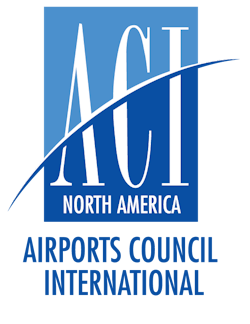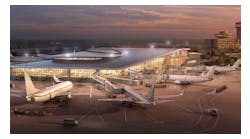Airports Council Releases Report on the Future of the Airports Workforce
Airports Council International – North America (ACI-NA), the trade association representing commercial service airports in the United States and Canada, released a report on factors that will shape the future of the airport workforce. The report identifies key skills that will be required of employees and most industry occupations in the future and provides high-level strategies to address and collectively plan for future workforce challenges.
“Our industry is constantly changing — especially in light of the pandemic — and it’s important that we continue to look to the future to identify both the challenges and opportunities that lie ahead,” said ACI-NA President and CEO Kevin M. Burke. “One of the most critical areas that will help shape and grow the airport industry is its workforce — the individuals who keep passengers safe, maintain facilities, and improve the airport experience for everyone who passes through them. By outlining key areas in which airports and managers should focus their attention and resources, as well as strategies to meet evolving needs, we can ensure that we are doing everything we can to continue improving the future of our industry and its workforce.”
“ACI-NA’s members understand that airports run because of the people who help maintain and support them. That’s why we have committed to growing our industry’s workforce while helping them adapt and gain the knowledge and skills they need to address future challenges and changing needs,” said Patrick Wilson, President of Metropolitan Knoxville Airport Authority and Board Member Liaison for ACI-NA’s Human Resources Committee. “This report provides valuable insights that will help airports continue to invest in our workforce, which in turn is an investment in our entire industry and the people, businesses, and communities that rely on it.”
To understand which skills the airport industry must prioritize, the report examines the long-term trends that are fundamentally reshaping the future airport workforce, including:
· Disruptions created by the expanding “fusion of technologies.”
· Steady and predictable demographic and generational shifts.
· An emphasis on individual and collective purpose.
· Inclusiveness as a core expectation.
· Prevalence of hybrid and remote work and the blending of physical, in-person work with virtual work.
· Accelerated role and importance of technology at airports.
· Social responsibility in all things.
· Shifting employment projections for a number of industries.
The report also identifies key workforce skills required to successfully manage future airport business and remain competitive in the job market with other industries, focusing on the “soft skills” that are applicable to all professions and job roles. Finally, it focuses on the importance of industry workforce development and ensuring the airport industry’s workforce has the right skills to deliver anticipated infrastructure growth and renewal.



